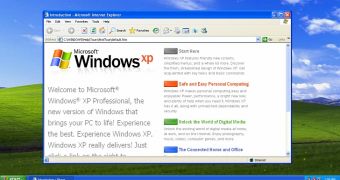Windows XP is now an unsupported operating system, so in case you’re still running it right now, chances are that you could easily become vulnerable to attacks and even get hacked if unpatched flaws are found.
An essay published by Andrew Tutt for the Yale University Information Society Project and published in the Michigan Law Review claims that Microsoft should make Windows XP open source and thus allow third-parties to improve the operating system and provide extended protection to users.
As mentioned by Geekwire, due to the fact that Windows XP is considered intellectual property, laws do not require Microsoft to help other companies create an aftermarket for Windows XP support, which means that the software giant can completely abandon the platform and leave users vulnerable.
The essay states that, under some new rules, Microsoft would have to keep Windows XP users protected, even though it reaches end of support. Basically, the company would have to work with partners to continue providing patches for XP machines, even though it no longer works on it.
“This is a terrible conundrum, one that cries out for a legislative solution. Make no mistake: Microsoft’s decision to end support for Windows XP could be one of the most consequential decisions made by any major institution this year. Society will soon need to rethink many old notions like property, competition, and innovation in a world where networked computers store individuals’ most important and intimate personal information,” it’s mentioned in the paper.
One of the easiest ways to keep Windows XP a secure platform is to release its source code to third-parties and thus allow others to create the patches that so many users need these days.
“Until the law catches up, however, it will fall to Microsoft alone to make the right decision. The company should extend the support clock, release its source code, or make clear to the world that if anyone else endeavors to provide future security support for Windows XP, Microsoft will help them do so.”
Unfortunately for users, Microsoft is after all just a company whose business needs to be profitable and, at the end of the day, to bring in as much money as possible. Releasing Windows XP source code or allowing third-parties to improve it means that no one would ever move to newer Windows versions, so the company’s revenues could fall dramatically, despite its investments in new and more advanced products.

 14 DAY TRIAL //
14 DAY TRIAL //